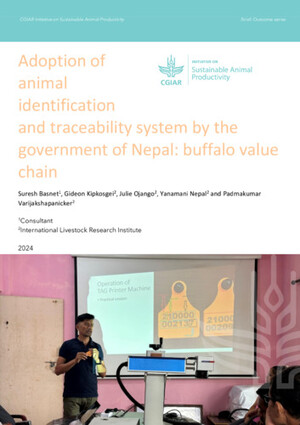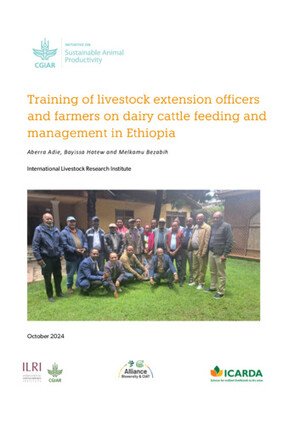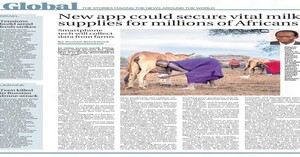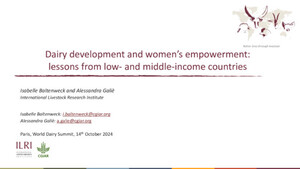
Quality of milk obtained in informal channels in Tanzania as revealed by integrated assessments
Abstract
There is increasing concern regarding the quality and safety of milk collected and consumed in Tanzania. The majority of milk is obtained in informal distribution channels where animals have unknown health status and good milking and handling practices are often not observed. These factors may contribute to the contamination with milk-borne diseases and milk quality loss. Investigations of the dairy value chain in Tanzania included surveys, key informant interviews, participatory rural appraisals, and laboratory analyses. Our results show a dynamic informal milk sector with rural-rural as well as rural-urban value chains with a diversity of consumers who appreciate milk for its nutritional value and show little concern for milk- borne hazards. Milk samples showed high bacteria and coliform counts exceeding standard levels in the East African Community, e.g. total bacterial count of 1.0 × 107 colony forming units per millilitre (cfu/ml) and total coliform counts of 1.1 × 107 cfu/ml. Ten bacteria species were isolated from milk samples, andfive of these, Pseudomonas aeruginosa, Listeria monocytogenes, Listeria innocua, Listeria ivanovii, and Klebsiella spp. are rarely reported in Tanzania. Furthermore, adulteration and residues of tetracycline and sulfonamide, were detected. It is recommended to work towards solutions that take an interdisciplinary and cross-sectoral approach to promote a product of nutritional value that is safe to consume.
Citation
Msalya, G., Hyera, E., Mizambwa, H., Faustin, C., Brown, H., Joseph, E., Shija, F., Alonso, S., Nonga, H., Karimuribo, E.D., Kurwijila, L.R., Roesel, K., Fetsch, A., Häsler, B. and Grace, D. 2019. Quality of milk obtained in informal channels in Tanzania as revealed by integrated assessments. Paper presented at the Seventh All Africa Conference on Animal Agriculture, Accra, Ghana, 29 July–2 August 2019.










